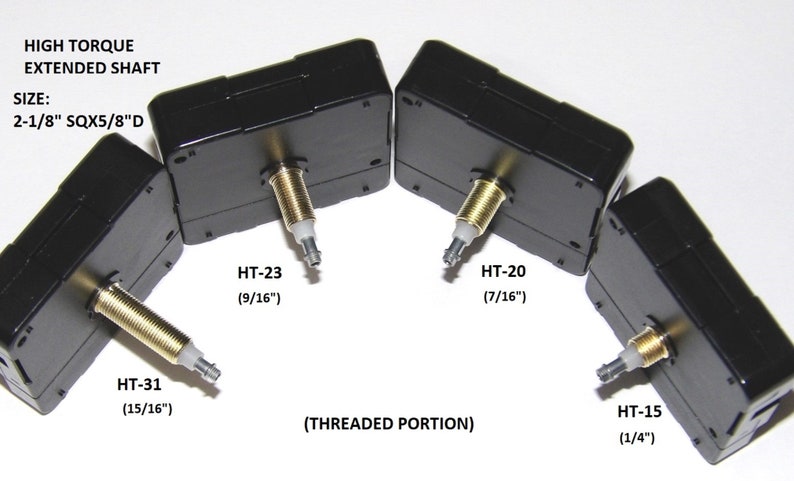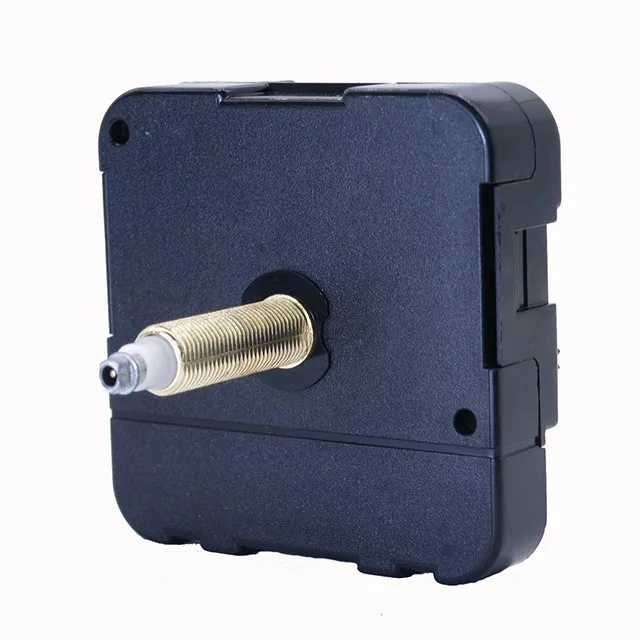
On the other hand, if the clock will be used in a private residence, where precision is not as important, a less accurate movement may be acceptable. If the clock will be used in a public space, such as a train station or an office building, it is important to choose a movement that is highly accurate and reliable. The intended use of the clock is also an important factor to consider when choosing a clock movement. On the other hand, if the movement is too large for the clock, it may not fit properly, and it may also be more difficult to install. If the clock movement is too small for the clock, it may not be able to drive the clock hands effectively, resulting in poor timekeeping.

Clock movements come in a range of sizes, and it is important to choose a movement that is appropriately sized for your clock.

The size of the clock is another important factor to consider when choosing a clock movement. While they are less accurate than quartz movements, many people prefer the charm and elegance of a mechanical clock. Mechanical clock movements, on the other hand, are powered by a weight or a spring, and they require regular winding. They are accurate and relatively inexpensive, making them a popular choice for many types of clocks. Quartz clock movements are the most common type of clock movement, and they are powered by a battery. There are two main types of clock movements: quartz and mechanical. The first factor to consider when choosing a clock movement is the type of clock you have.

In this article, we will explore each of these factors in detail, to help you choose the right clock movement for your needs. These include the type of clock, the size of the clock, and the intended use of the clock. When it comes to choosing clock movements, there are a few key factors to consider.


 0 kommentar(er)
0 kommentar(er)
